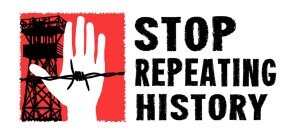Lorraine K. Bannai
Lorraine K. Bannai was part of the coram nobis team that overturned Fred Korematsu’s 40 year conviction.
Professor Lorraine K. Bannai serves as Director of the Fred T. Korematsu Center for Law and Equality and Professor of Lawyering Skills at Seattle University School of Law. After earning her J.D. from the University of San Francisco School of Law, Professor Bannai joined what is now the San Francisco firm of Minami Tamaki. While there, she served on the legal team that successfully challenged Fred Korematsu’s World War II conviction for refusing to comply with orders that resulted in the forced removal of Japanese Americans from the West Coast.
Prior to joining the Seattle University School of Law, where she has served for the past 24 years, Professor Bannai directed the Academic Support Program at the University of California Berkeley Law School; taught at the University of San Francisco and New College of California Schools of Law; and was an inaugural faculty member in the Law and Diversity Program at Western Washington University.
The Korematsu Center for Law and Equality, which she directs with Executive Director Robert S. Chang, seeks to carry on Fred Korematsu’s legacy by engaging in research, education, and advocacy to advance the causes of equal treatment and fair process for all. It has been involved in a wide range of cases, both in filing amicus briefs and direct representation, as well as policy discussions, including litigation to preserve ethnic studies in the Tucson Unified School District; asserting the need for diversity on medical school faculties; challenging the citizenship question on the U.S. census; and arguing against bias in legal proceedings, such as in the closing arguments of counsel, the striking of jurors of color, and the imposition of the death penalty.
Professor Bannai has written and spoken widely on the wartime Japanese American incarceration and its present-day relevance. She has testified before the U.S. Senate Judiciary Committee, raising the warning of the incarceration in opposing provisions of the National Defense Authorization Act (NDAA) that permit the indefinite detention of individuals without due process. She has also co-authored amicus briefs on behalf of the children of Fred Korematsu, Gordon Hirabayashi, and Minoru Yasui in Hedges v. Obama, a case challenging those same NDAA provisions, and in Trump v. Hawaii, challenging the Muslim travel ban. Her biography of Fred Korematsu, Enduring Conviction: Fred Korematsu and His Quest for Justice has been published by the University of Washington Press.
Professor Bannai presently serves as a member of the Washington State Minority and Justice Commission, on the board of the Asian Bar of Washington (ABAW) Student Scholarship Foundation, and as chair of ABAW’s Rapid Response Committee. She is a past board member of numerous other organizations, including the Seattle chapter of the Japanese American Citizens League.
Publications
Lorraine K. Bannai, Enduring Conviction: Fred Korematsu and His Quest for Justice (2015).
Lorraine K. Bannai, "Challenged X 3: The Stories of Women of Color Who Teach Legal Writing," 29 Berkeley Journal of Gender, Law and Justice 275 (Summer 2014).
Lorraine K. Bannai, Gordon Hirabayashi: "What the College Student, Client, and Professor Taught Us about Seeking Justice," Washington State Bar Association's Bar News (March 2012).
Lorraine K. Bannai, "Taking the Stand: The Lessons of Three Men Who Took the Japanese American Internment to Court," 4 Seattle J. Soc. Just. 1 (2005).
Lorraine K. Bannai & Anne Enquist, "(Un)Examined Assumptions and (Un)Intended Messages: Teaching Students to Recognize Bias in Legal Analysis and Language," 27 Seattle U. L. Rev. 1 (2003).
Lorraine K. Bannai, Anne Enquist, Judith Maier & Susan McClellan, "Sailing Through Designing Memo Assignments," 5 Leg. Writing 193 (1999).

